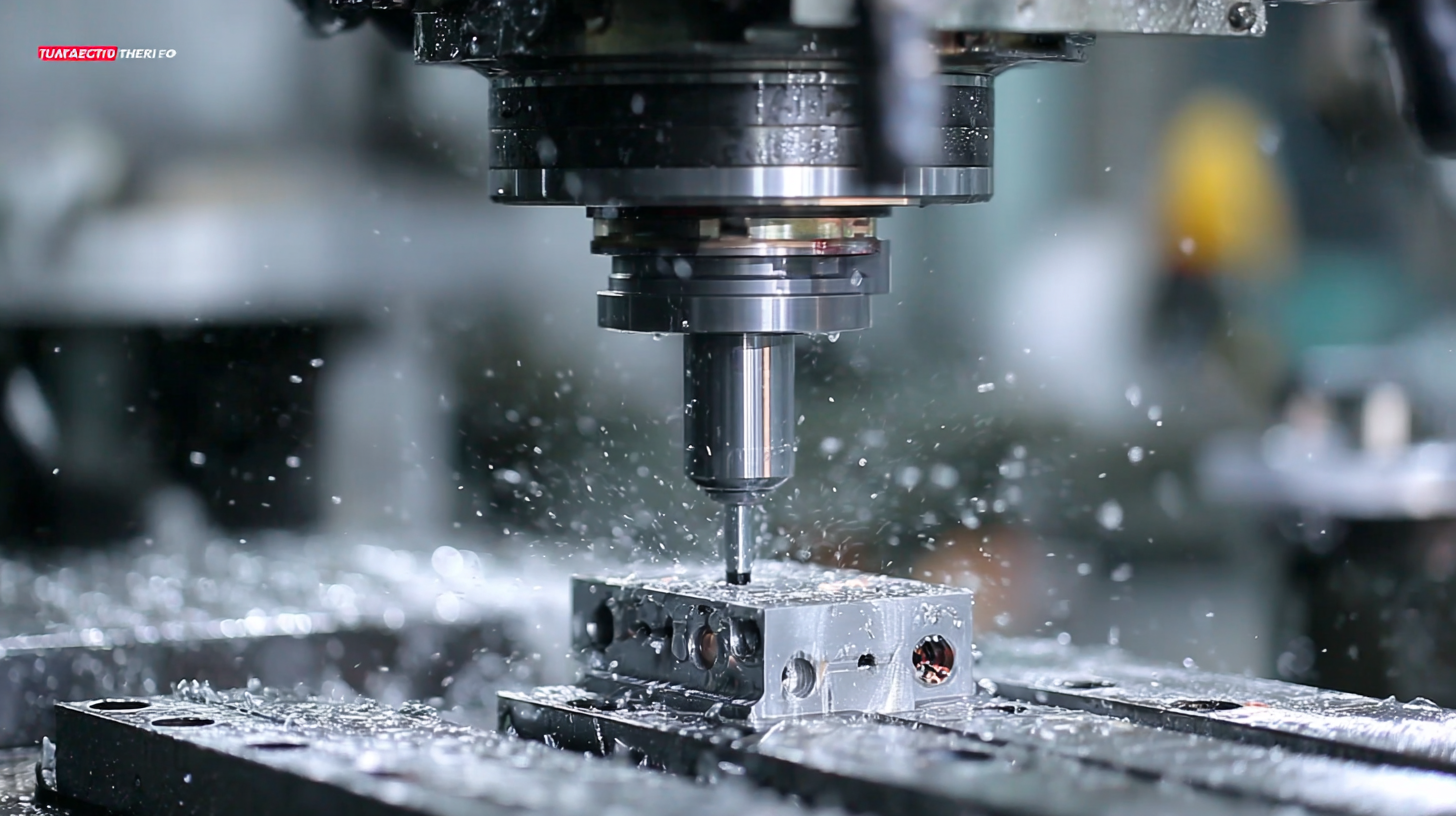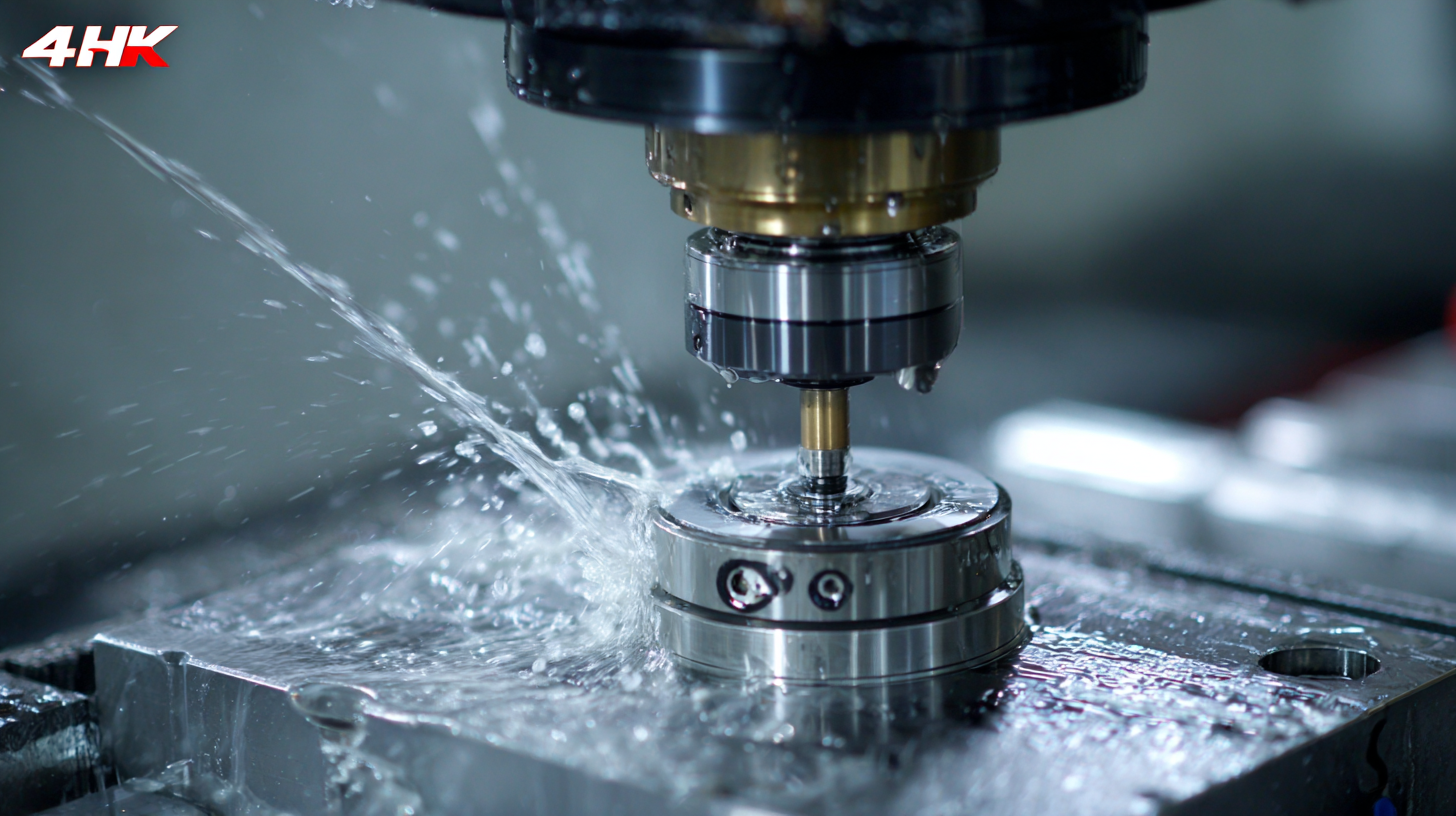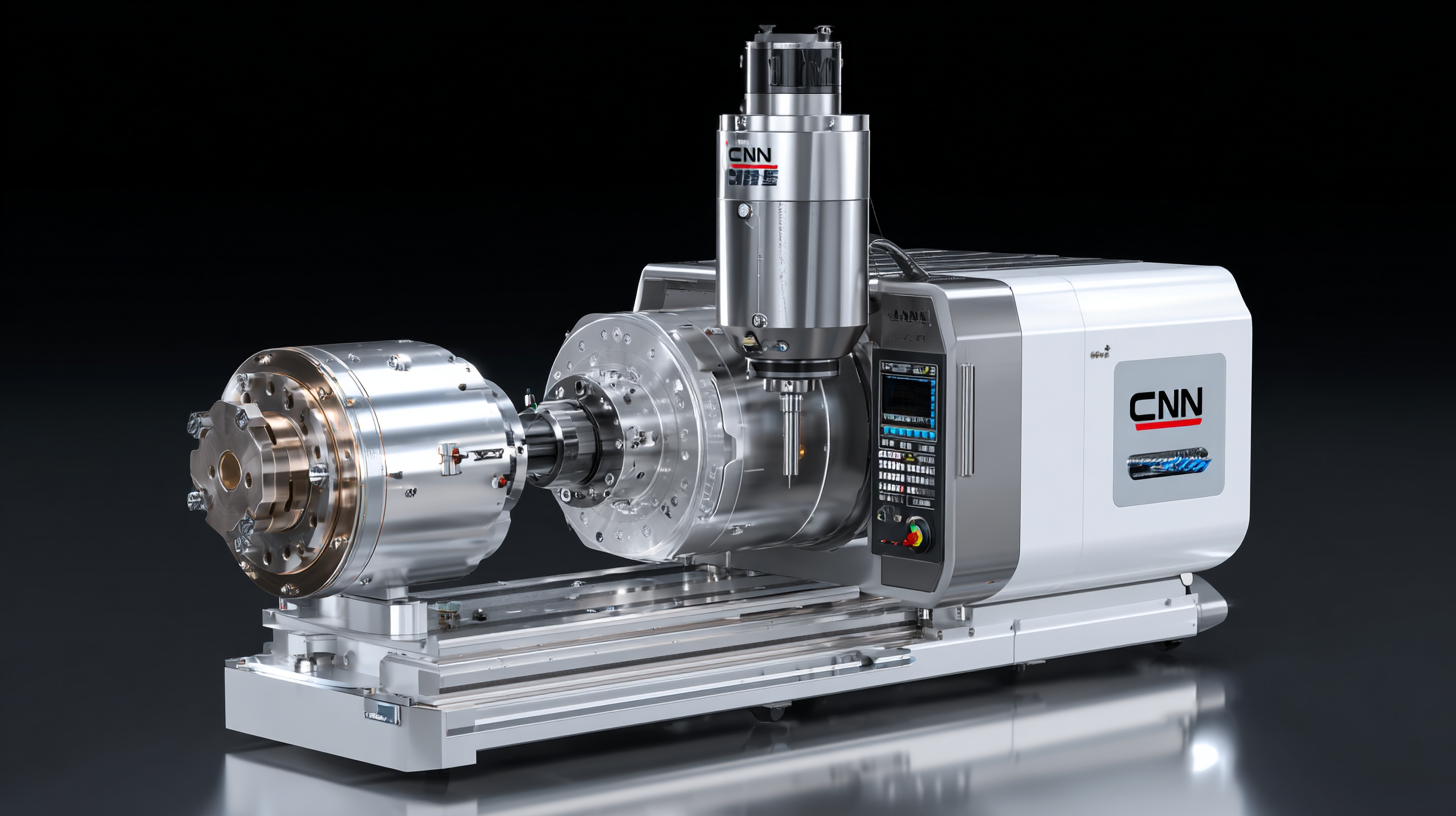Discover World-Class Manufacturing: The Best Aluminum CNC Machines from China's Premier Factory
In the rapidly advancing landscape of manufacturing, aluminum CNC machines have emerged as indispensable tools for enhancing precision and efficiency in various industries. According to a report by MarketsandMarkets, the global CNC machine market is projected to reach USD 100 billion by 2026, with a significant portion of this growth driven by the increasing demand for aluminum components across sectors such as automotive, aerospace, and electronics. China, as a leading manufacturer, is at the forefront of this revolution, producing world-class aluminum CNC machines that align with international standards.

These machines not only promise improved productivity but also foster innovation in product design. As industries continue to seek high-performance solutions, understanding the best offerings from China’s premier factories becomes crucial for businesses aiming to stay competitive in a dynamic market.
Exploring Features of World-Class Aluminum CNC Machines from China
When it comes to precision engineering and manufacturing capabilities, China's aluminum CNC machines stand out in the global market. These machines are designed to handle complex machining tasks with unparalleled accuracy, thanks to advanced technology and robust engineering. Features such as high-speed spindles, multi-axis capabilities, and adaptive control systems enable manufacturers to achieve intricate designs and maintain tight tolerances, making them ideal for various applications from aerospace to automotive industries.

One of the key features of aluminum CNC machines from China's premier factories is their versatility. Many of these machines are equipped with interchangeable tooling systems, allowing for quick changes between different tasks without significant downtime. Additionally, the integration of user-friendly software enhances operational efficiency, providing operators with the tools needed to monitor machine performance and optimize processes. As manufacturers look to improve production lines, these advanced CNC machines offer a competitive edge in speed, quality, and overall productivity, making them an outstanding choice for businesses looking to enhance their manufacturing capabilities.
Key Factors Influencing the Performance of CNC Machines in Manufacturing
In the rapidly evolving landscape of manufacturing, the performance of
CNC machines is influenced by several key factors. A recent report by the
International Federation of Robotics indicates that the global CNC machine market is
projected to reach approximately $100 billion by 2026, driven
by advancements in technology and increasing demand for precision machining.
Among the critical factors affecting performance are the machine's rigidity, drive system,
and controller technology. Rigid machines reduce vibrations, improving the accuracy and
quality of the finished product. For example, studies have shown that rigidity can enhance
machining speed by up to 30%, maximizing
productivity.
Furthermore, the drive system and type of controller directly impact the responsiveness
and efficiency of CNC operations. A report by MarketsandMarkets highlights that
servo-driven CNC machines offer faster processing speeds and improved energy
efficiency compared to stepper motors, contributing to a notable reduction in operational
costs. Additionally, the integration of advanced control systems, including
AI and IoT capabilities,
allows manufacturers to optimize workflows and predictive maintenance schedules, enhancing
their overall competitiveness. By focusing on these factors, manufacturers can significantly
improve the performance of aluminum CNC machines, positioning themselves as
leaders in the global market.
Tips for Choosing the Right CNC Machine for Your Aluminum Projects
When embarking on aluminum projects, selecting the right CNC machine is crucial for achieving high-quality results and maximizing efficiency. Consider your specific needs first—whether you are focusing on precision, speed, or versatility. Aluminum is a lightweight yet strong material, and not all CNC machines are equipped to handle it effectively; therefore, look for machines that specifically cater to aluminum milling.

Additionally, essential features such as spindle speed and tooling options should influence your decision. A machine with a high spindle speed allows for quicker cut times, while adaptability in tooling will enable you to tackle a variety of projects, from intricate designs to more straightforward tasks. Always consider the support and resources available from the supplier, as well — a reputable factory will provide not only machinery but also guidance on setup and maintenance, ensuring you can operate your CNC machine smoothly and effectively.
Comparative Analysis: China's Premier CNC Manufacturers Reviewed
When it comes to aluminum CNC machining, China is home to several premier manufacturers that stand out in the global market. A comparative analysis of these leading CNC manufacturers reveals not only their technological capabilities but also the various features that set them apart. Factors such as precision, speed, and the range of customizable options play significant roles in determining which CNC machine is the best fit for specific manufacturing needs.
Tips for selecting the right CNC machine include evaluating the manufacturer’s experience and reputation in aluminum machining, as well as understanding the support and services they provide post-purchase. It's crucial to consider the machine's compatibility with the types of aluminum alloys you plan to work with, ensuring optimal performance and longevity. Additionally, pay attention to the machine’s software capabilities, as advanced programming features can enhance efficiency and reduce production times.
Another important aspect to consider is the availability of spare parts and maintenance services. Quality manufacturers often provide comprehensive warranties and accessible customer support, which can be a game changer for manufacturers relying heavily on their CNC machines. Prioritizing these factors can lead to informed decisions and ultimately improve production outcomes in your aluminum machining projects.
Future Trends in Aluminum CNC Machining Technology and Innovation
As the demand for precision and efficiency in manufacturing continues to grow, the aluminum CNC machining sector is experiencing a significant transformation driven by innovative technologies. One of the most notable trends is the integration of Artificial Intelligence (AI) and Machine Learning (ML) into CNC machining processes. These advancements enable machines to optimize their operations in real-time, enhancing productivity and reducing waste. Manufacturers can now utilize predictive maintenance, which minimizes downtime by signaling when a machine requires service before a breakdown occurs.
Moreover, the rise of Industry 4.0 is revolutionizing how factories operate. The interconnectedness of machines and systems allows for seamless data exchange, facilitating smarter decision-making and streamlined production processes. Implementing IoT (Internet of Things) technologies in aluminum CNC machining not only improves efficiency but also increases the overall quality of the outputs. As China's premier factories embrace these future trends, they are setting new standards for manufacturers worldwide, emphasizing the importance of innovation in maintaining a competitive edge in the global market.
Discover World-Class Manufacturing: The Best Aluminum CNC Machines from China's Premier Factory - Future Trends in Aluminum CNC Machining Technology and Innovation
| Model | Machine Type | Max Cutting Speed (m/min) | Precision (mm) | Features | Estimated Price (USD) |
|---|---|---|---|---|---|
| ALU-5000 | CNC Milling Machine | 50 | 0.01 | High Efficiency, User-Friendly Interface | 20,000 |
| ALU-6000 | CNC Router | 40 | 0.02 | Automatic Tool Change, Compact Design | 15,000 |
| ALU-7000 | CNC Lathe | 60 | 0.015 | Fast Processing, Durable Build | 25,000 |
| ALU-8000 | CNC Plasma Cutter | 70 | 0.03 | High Precision, Energy Efficient | 30,000 |